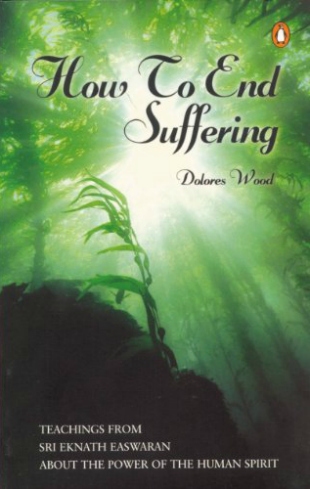Sri Eknath Easwaran (1911-1999) taught meditation and the spiritual life for more than 40 years. In 1961, he established the Blue Mountain Center in California. Over 25 of his books have been published, revealing this erudite and compassionate spiritual teacher's unique blend of Eastern and Western wisdom for the path of love and service. Near the end of his life, Sri Easwaran added two new disciplines to his Eight Point Program of meditation: Detached Reflection and Determined Redirection, two avenues of insight and action for transforming our weaknesses into strengths.
Dolores Wood has worked in journalism and publishing for more than two decades. She joined Sri Easwaran's meditation community in 1992 and then worked with its publishing arm and newsletter. In this illuminating and substantive book based on Easwaran's spiritual teachings, Wood delves into his understanding of suffering, the obstacles to spiritual progress, unifying desire, the purpose of the second half of life, dealing with death, and taking responsibility for your health in this life.
Those familiar with Sri Easwaran's writings on samskaras (negative emotions that play havoc with our minds) will be amazed at the succinct summaries of them by Wood. She is an excellent synthesizer. Check out the ways in which spiritual individuals can harness the misdirected energy in anger, greed, and fear and turn them into compassion, generosity, and fearlessness.
Wood also does a fine job pondering Sri Easwaran's use of the mantra to prevent the mind from dwelling on destructive thoughts and the value of spiritual readings as an antidote to the information overload of contemporary culture.
How to End Suffering contains a mother lode of uplifting quotations from Sri Easwaran on patience, Gandhi, the body, unity, the emotions, transforming desire, death, the mind, and mysticism. Wood has rendered her esteemed spiritual teacher an invaluable service here by respectfully summarizing his mystical vision of life, death, and meaning. And all who read this engrossing work are the beneficiaries.
